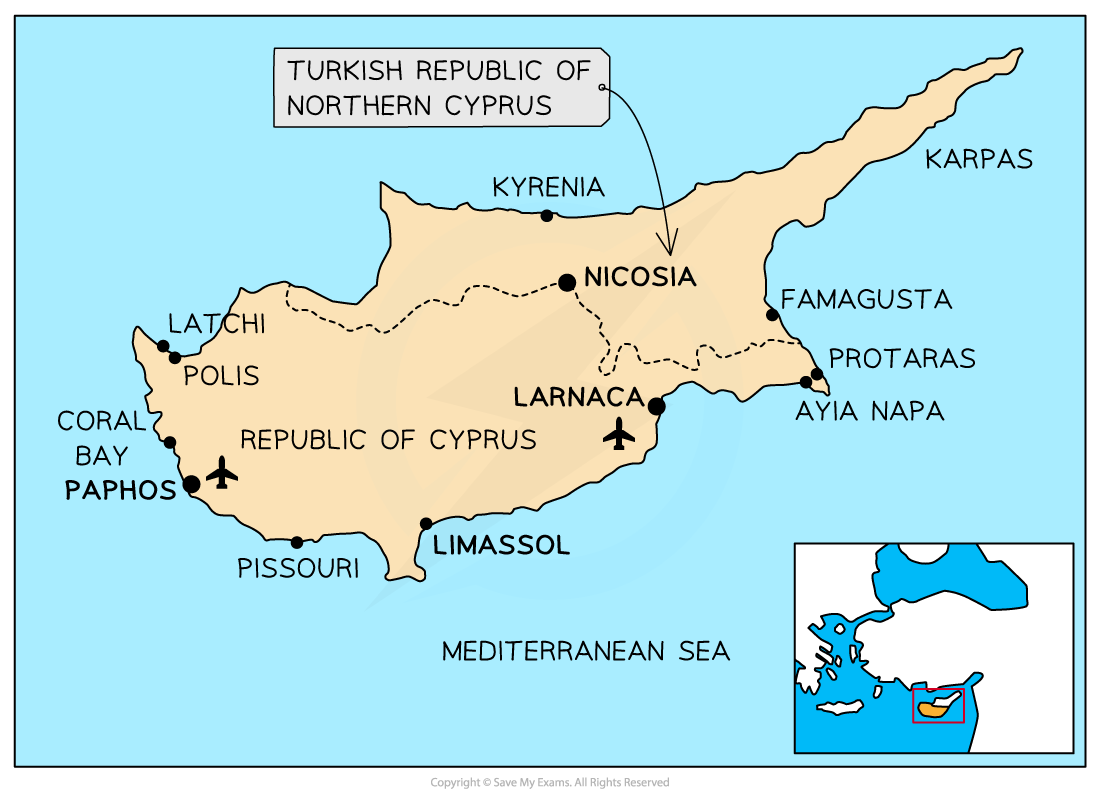Management of Tourism
- Tourism has become so large-scale in so many parts of the world that it needs to be managed
- Key tourist destinations are looking to sustainability to protect their incomes but also their environments
- Some areas of sustainable tourism have been more successful than others, and it's important to remember that not all schemes work
Sustainable tourism
- Organised so that environmental, social and economic levels can be maintained in the future without compromising the present areas
- Tourism operates in a world of finite resources where its impact is becoming an issue
- People and environmental groups are becoming more aware of the destination footprint and urge people to:
- Fly less and stay longer
- Consider slow travel
- Stay locally
- Avoid international chain hotels and inclusive holidays
- Carbon-offset their flight
Ecotourism
- The most easily recognised of sustainable tourism
- This is a specialised form of tourism in which small numbers of people experience unusual or niche environments such as coral reefs, tropical rainforests, remote mountain areas, Antarctica, and other conservation areas
- Community based tourism are becoming more popular in fragile environments of LEDCs, bringing larger benefits to the local community and employment
Ecotourism in Bhutan
- Ecotourism is all about visitors leaving as small a carbon footprint as possible to the benefit of the community and environment
- As one of the poorest developing nations, Bhutan can claim to have one of the most sustainable tourist industries in the world
- Bhutan's tourist sector is one of the most exclusive travel destinations in the world with a reputation for a spectacular natural environment, authenticity, remoteness and a well-protected cultural heritage
- Ecotourism is usually run by private enterprises; however, Bhutan's government has adopted a different approach of 'high value but low volume' tourism creating a sense of exclusivity
- After 300 years of self-isolation, Bhutan opened its borders to tourists in 1974
- Due in part to the realisation that hotels built for the King's coronation could be used to accommodate paying guests so boosting foreign exchange and providing much-needed revenue for the country's development
- Initially only 2500 foreign visits were allowed, today that number has doubled reinforcing the exclusivity
- All tourists are escorted in groups to specific locations and must travel on officially approved tour operators
- All are expected to pay a 'Sustainable Development Fee' or surcharge of $200 (£167) per day
- The surcharge goes towards offsetting tourist's carbon footprint and upskilling workers along with protecting Bhutan's unique heritage and spectacular mountain scenery
- However, some argue that all it does is attract wealthier visitors and promote Bhutan as a niche destination
- Ultimately, Bhutan's strategy does control the volume and impact of tourism
Protected areas
- This involves protecting vast areas from development
- National Parks - Yellowstone was the first to be established in 1872 and now there are more than 4000 worldwide
- Many countries have National Forests, Country Parks, Areas of Outstanding Natural Beauty, World Heritage Sites and other areas considered important to protect
Tourist hubs
- Concentratin of tourism into one particular area of a country or region
- Impacts are seen to be kept to one place
- However, it is difficult to keep tourism within boundaries and overspill occurs
- Any benefits are kept within that area and not spread throughout the community
- Creates division within the area
Quotas
- Number of tourists would not be allowed to exceed a sustainable level
- Based on a lottery system of so many places being available
- Can be difficult to administer and causes tension
- Conservation areas have permits allowing visitors to see unique areas or animals - coral reefs, mountain gorillas, Galapagos Islands etc
Exam Tip
It is important that you don't confuse conservation with preservation
Preservation is about keeping something exactly as is, with no option of development
Whereas conservation allows development to occur, providing it doesn't detract from the character of the area


